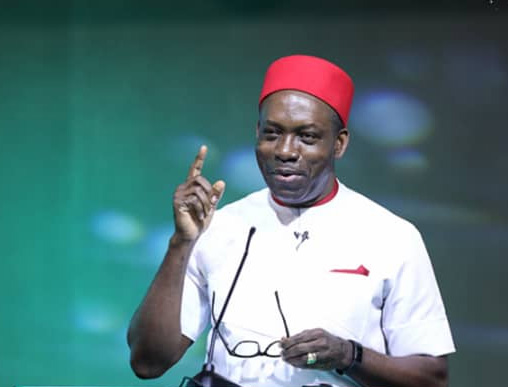BY STAN ALIEKE
When lawyers, mediators, counselors or therapists advise couples to consider the option of divorce, it should be noted that the adviser is not an enabler or promoter of divorce neither is he a messenger of doom. Nobody in a sound mental cum moral state can advise a couple whose marriage is beautiful and working out to get a divorce.
The advice for divorce only comes into question when it is the last and best resort for peace, mental health and even safety of the persons involved in the marriage.
As paradoxical as it is, Nigeria’s dominant religions frown at divorce. Even the traditionalists don’t support divorce and separation of marriage, morality police also shuns its option in the society. Folks don’t hesitate to quote that marriage is for life using till death do you path and the religious cliché “what God has joined together, let nobody put asunder”.
Advertisement
We also as lawyers and marriage counselors don’t in all morality and in every sense of honesty support divorce but it’s advisable to get a divorce and stay alive in good physical and mental health instead of forcing yourselves to stay in something that’s clearly no longer working; risking your sanity, your children and all you have worked for and in some extreme cases, risking your life.
Hence the disclaimer; this post is not to encourage divorces or separation of marriages, it is to be the last resort to be used when everything has failed and the marriage has broken down “irretrievably and irredeemably”.
Due to the sanctity of the institution of marriage, even judges and courts that are legally empowered to declare a marriage to come to a close are always reluctant to grant divorce pleadings. Judges do all their best to make sure that divorce processes don’t pull through or couples seeking divorce can still make the marriage work but when it is obvious that what is the best option is divorce the judge will be left with no other option but to grant it.
Advertisement
The matrimonial causes act in S.11 mandates the court not to be quick to grant divorce prayers; they should try to make sure the couples try the option of reconciliation. This is to happen through the active steps of the court, by setting up mediation and appointing conciliators for the reconciliation process of the couples seeking divorce to see if the partners can sort out the differences.
The law also mandates the judge to first act as a conciliator to seek for the reconciliation of the couple first. He can only step into his judicial capacity to commence hearing of the divorce petition when the mediation and conciliation for the reconciliation of the partners fails.
It is only when s11 of the act has been fulfilled by the judge and the parties still want divorce that the judge can go ahead to hear the divorce petition.
Therefore, in Nigerian courts, before the prayer for divorce can be granted by the judge, the couple(s) must prove and it must be “manifestly be seen” that the marriage has broken down irretrievably, this means that the partners and even the court have tried everything to make the marriage work but it’s clearly not working and the partners going their separate ways is the best option at the time being.
Advertisement
Also, courts will be hesitant to grant partners divorce for a marriage that is less than two years, this is called the two years rule. The law according to the s.30 of the matrimonial causes act provides that it is only with the leave of the court that a proceeding for divorce and separation of marriage that is less than two years can be commenced.
Steps of getting a divorce in Nigeria
Firstly, you must institute a process for divorce through your lawyer in the high court of the state that has competent jurisdiction. Divorce and dissolution of marriage is instituted through filing a petition.
Secondly, the party seeking divorce must show through marriage certificate and other relevant documents that the marriage is not less than two years. This is called the two years rule as according to s.30 of the matrimonial cause act, leave of court must first be obtained for divorce or separation of marriage that is less that two years (as we earlier pointed out).
Advertisement
The party seeking the divorce must also prove to the court that the marriage has broken down irretrievably and and irredeemably and the court granting the couple divorce is the last and ultimate alternative
Grounds for divorce in Nigeria
Advertisement
The primary ground for divorce in Nigeria is that the marriage has broken down irretrievably and irredeemably. This is the provision of the matrimonial cause act in s.15. What the phrase, “broken down irretrievably” means is that there’s nothing that could ever be done for the marriage to ever work again and divorce is the last and best resort.
Others valid reasons (grounds) for divorce are: When a partner is unfaithful and the other partner cannot tolerate the extra marital affairs can be a ground for divorce.
Advertisement
When a partner is denying the other partner sex or love making or when one partner due to mental or health conditions cannot grant sex or sexually satisfy the other partner can be a valid ground for divorce. This is called the inability to consummate the marriage.
When a man cannot provide for the needs of the family or take care of the family can be a ground for a wife to file for divorce, if it can be proven to the court that failure of the man to take care of the family has led to the marriage breaking down irretrievably.
Advertisement
When a partner exhibits a character that is annoying to the other partner that the other partner can no longer tolerate, the habit can be a valid ground for a partner filing for divorce. For instance, a wife can file for divorce on the grounds that the man is a serial drunkard. A partner can also file for divorce on the ground that the other partner is dirty, untidy; you can as well file divorce petition on the ground that your partner farts carelessly and pollutes the air and you can no longer tolerate that behavior; it is now based on the discretion of the court to determine if those behaviors has made the marriage to break down irredeemably.
When a partner has deserted the marriage or left the other partner and becomes incommunicado is a valid ground to seek for divorce.
When the marriage was contracted under falsehood, half truth or undeclared facts can as well be a ground for seeking for divorce.
When a partner is abusive is a valid ground for divorce. Physical, mental or emotional abuse is always not treated lightly by the court in divorce process. So abusive marriage is a valid reason to file for divorce and the court must grant the prayer. It is always advisable to run away from an abusive marriage, file for divorce once your partner starts getting physical with you and beats you up or threatens to beat you up. It’s better for you to be alone and alive and in good health than be in marriage where you are turned into a punching bag.
When a partner falls sick and the mental or health condition is what the other partner can no longer cope with is a ground for divorce especially if the infirmity that the partner is suffering from is that which can be communicable.
These are some of the grounds that a partner can institute a proceeding for divorce or dissolution of marriage. When any of these grounds is the reason why a partner is seeking divorce, it must be established that the reason leads to the primary ground which is; it made the marriage to have broken irretrievably.
When the court declares a marriage dissolved, it means that the partners are now legally free and single, free as birds to mingle and to go into another marriage if they so wish.
Getting a divorce in Nigeria
The process of instituting a divorce process in Nigeria starts with filing a petition in the high court of the state which has jurisdiction and goes through the trial process, filing of affidavits, evidences are tendered before court comes to judgment.
The process and all therein can be tedious and technical and that’s why you need to employ the services of divorce lawyer that can guide you through.
Alieke (Esq.) is the lead counsel at Stanley Alieke & Co. He can be reached via [email protected]
Views expressed by contributors are strictly personal and not of TheCable.
Add a comment






